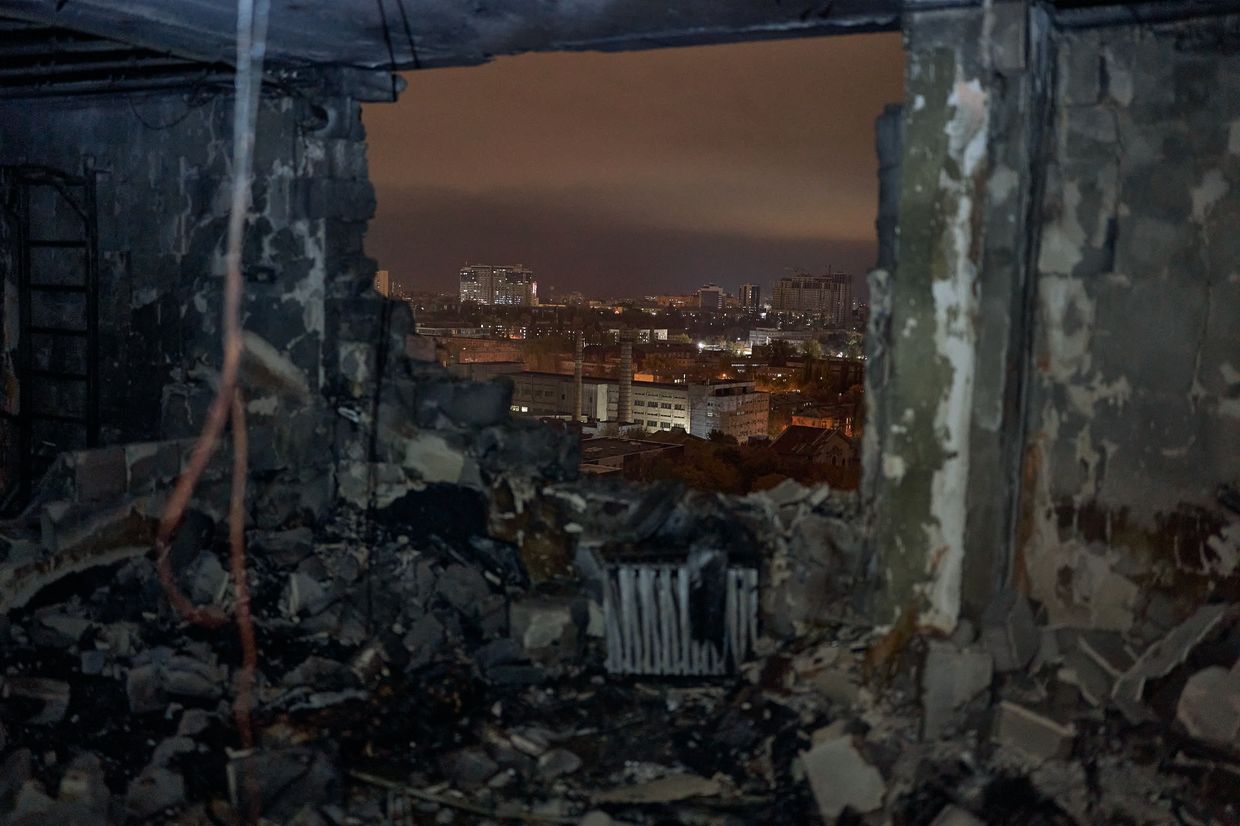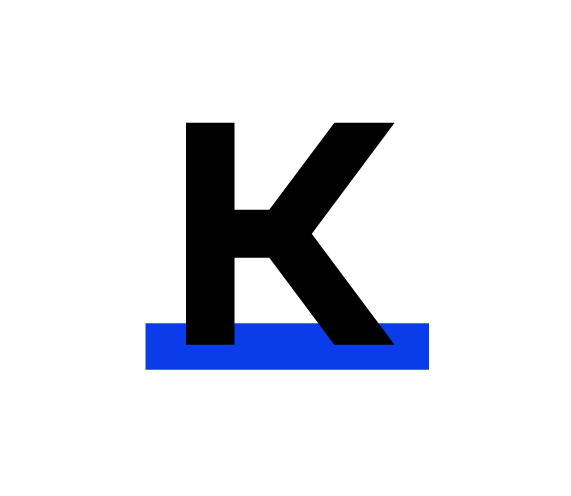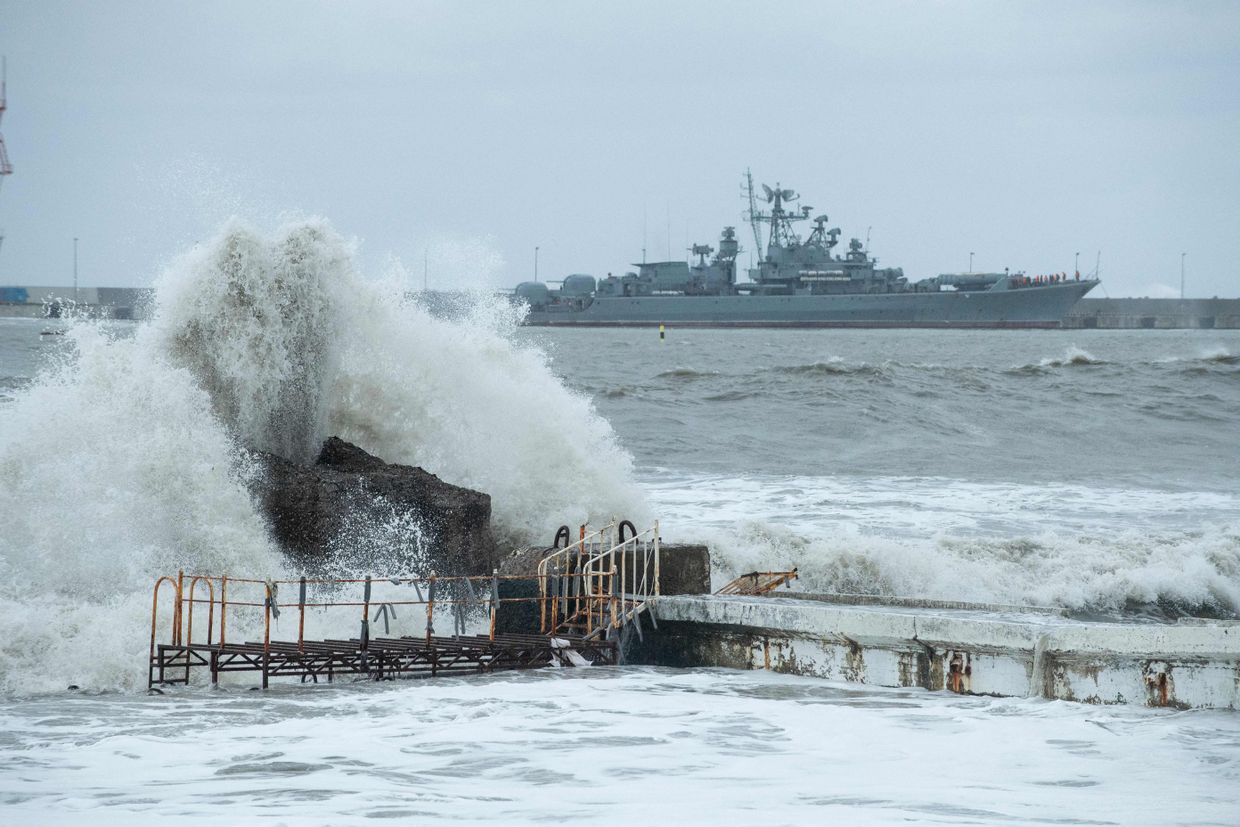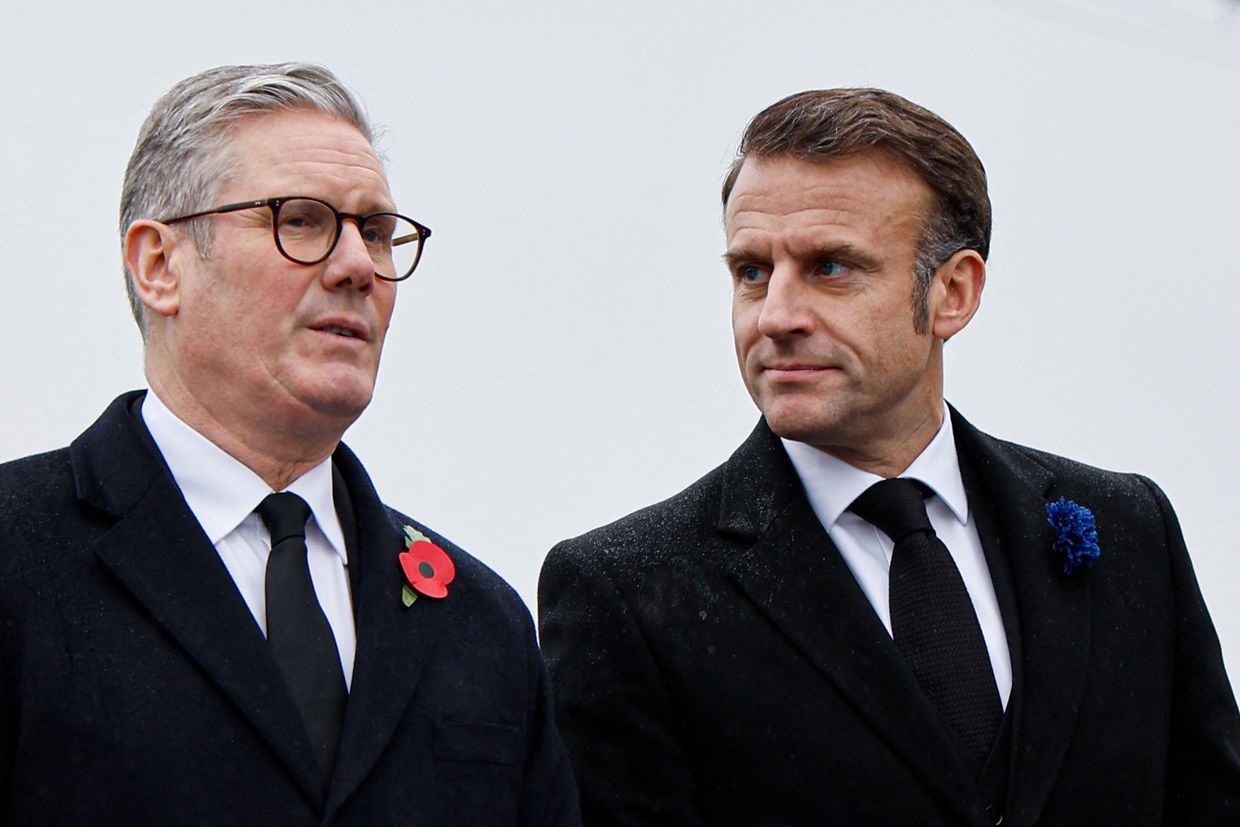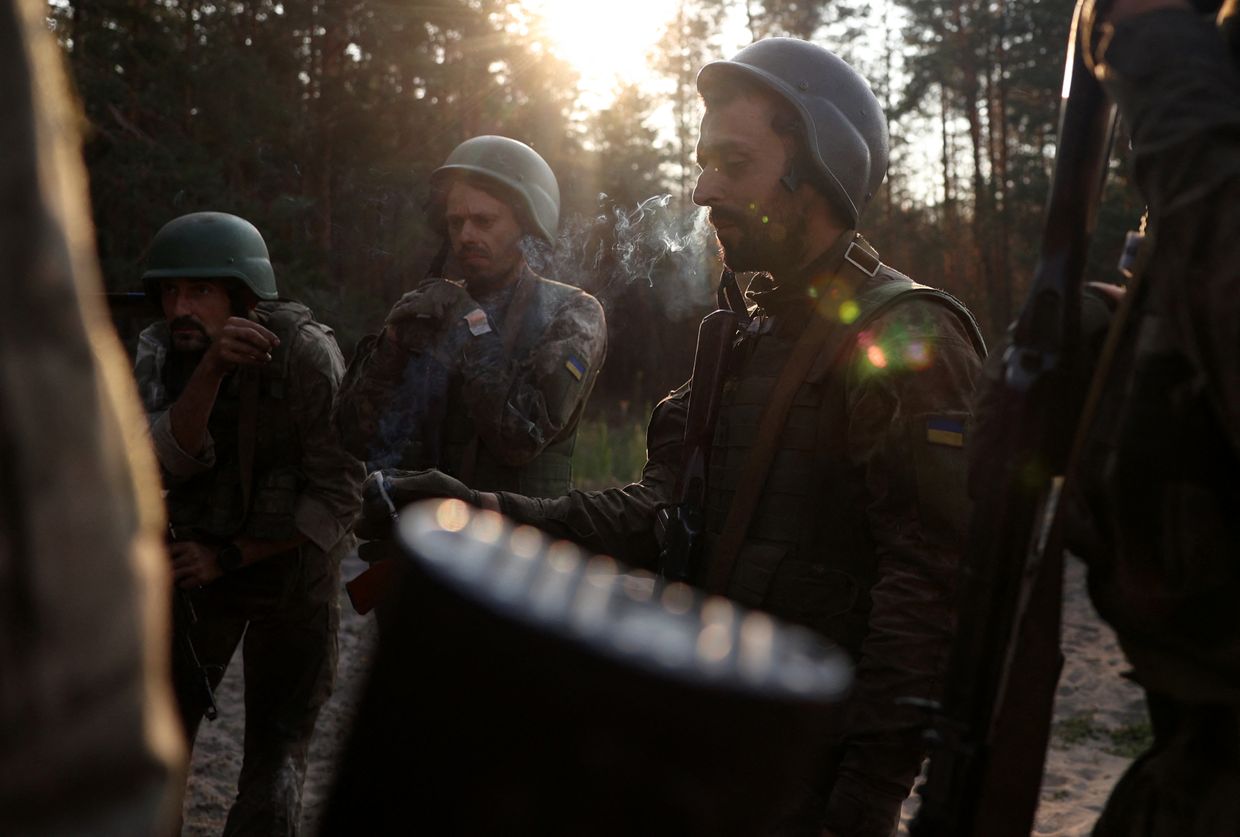Key developments on March 26:
- Russia has struck Ukraine's energy sites 8 times since March 18, Zelensky's advisor says
- Ukraine's list of energy facilities banned from attacks differs from Russian version, Energy Ministry says
- Ukraine-US relations 'back on track,' Zelensky's chief of staff says
- Russia's withdrawal from Ukraine condition for easing EU sanctions, commission says
Ukraine has recorded eight confirmed hits against its energy facilities by Russian forces since March 18, when the Kremlin claimed to have ordered a pause on such attacks, presidential advisor Dmytro Lytvyn said on March 25.
"Moscow is a city built on lies, no surprise to anyone in Ukraine," President Volodymyr Zelensky's aide said.
Russian President Vladimir Putin said on March 18 that he had ordered a 30-day halt on strikes against energy facilities after rejecting a full truce on all military operations in a phone call with U.S. President Donald Trump.
After separate rounds of talks between the U.S., Russia, and Ukraine in Riyadh, Kyiv and Moscow declared a halt on strikes against energy facilities and military operations in the Black Sea.
Moscow claimed that the Black Sea ceasefire would take effect only after some Western sanctions were lifted, while alleging that the energy truce had been in effect since March 18.
"But the reality is — since March 18, they’ve been hitting our energy sites with bombs, attack drones, and first-person-view drones," Lytvyn commented.
"We’re not going into all the details, but there have already been eight confirmed hits on energy facilities."
The official did not specify which facilities were hit or when. The Kyiv Independent could not verify the claims.
DTEK, Ukraine's largest energy company, told the Kyiv Independent that their facilities recorded no hits between March 18 and 25, despite being regularly targeted before that.
Lytvyn also noted that Ukrainian air defenses have shot down hundreds of Russian drones every night since March 18, claiming that "many of those drones were likely targeting other energy facilities."
Russia accused Ukraine on March 26 of launching a drone attack at energy facilities in Russia and occupied Crimea — a claim the Ukrainian military has denied.
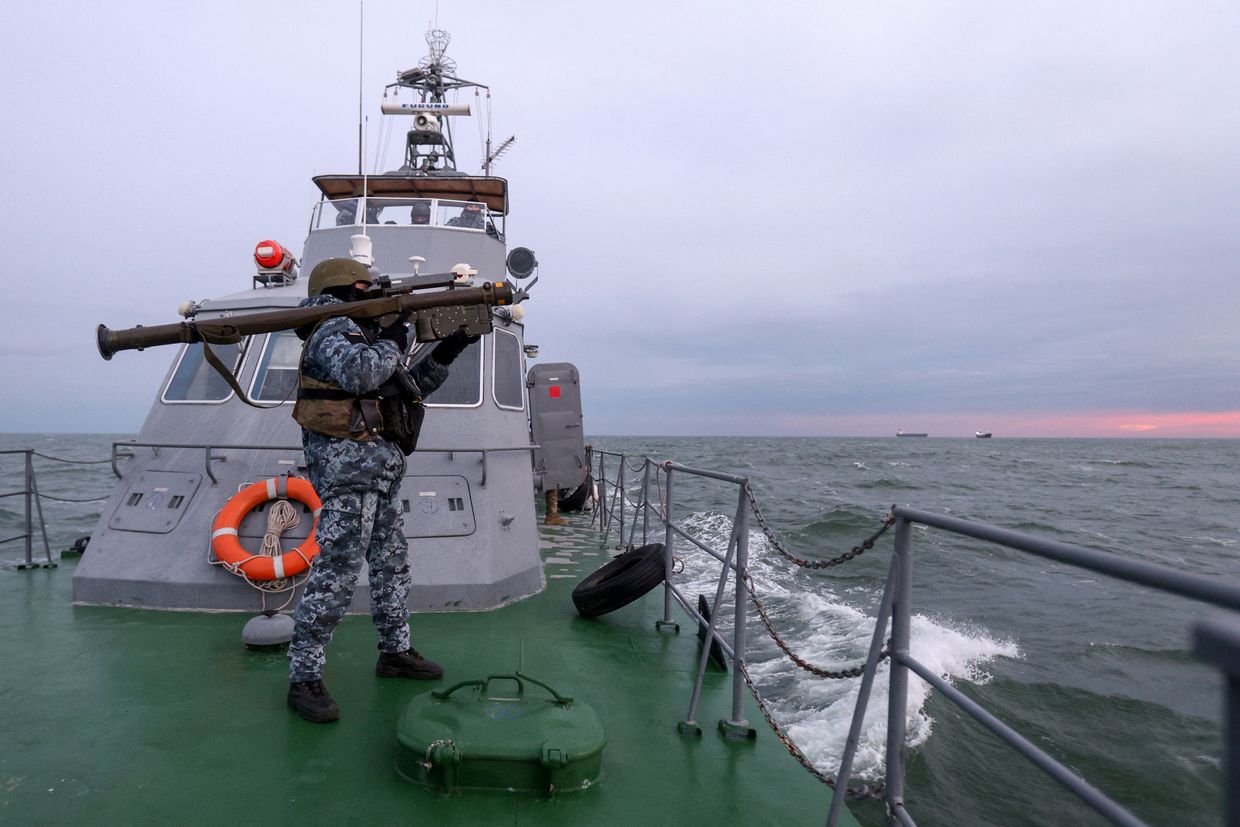
Ukraine's list of energy facilities banned from attacks differs from Russian version, Energy Ministry says
Ukraine's list of energy facilities Kyiv wants Russia to stop striking during a partial ceasefire is at odds with Russia's, European Pravda reported on March 26, citing a response to a request from the Energy Ministry.
The Energy Ministry told European Pravda that Kyiv and Washington had agreed to a list of energy facilities Ukraine wants Russia to stop striking as part of a truce on energy attacks. This list differs from the one Russia and the U.S. agreed to a day prior, according to the Energy Ministry.
The Kremlin said on March 25 that Russia and the U.S. had agreed on a list of Russian and Ukrainian energy facilities that were barred from attacks under a partial ceasefire between Kyiv and Moscow.
According to the Kremlin, the list included oil refineries, as well as oil and gas pipelines and storage facilities, including pumping stations. The list also included power production and transmission facilities, including power plants, substations, and transformers. Among power plants, the Kremlin specifically named nuclear power stations and hydroelectric dams.
Ukraine's list includes a ban on strikes on the on the electric power, oil and gas, nuclear and coal industries, as well as energy equipment manufacturing facilities.
Ukrainian oil and gas production facilities — which, according to the Energy Ministry have suffered the most Russian attacks as of late — weren't on Kremlin's list, the ministry told European Pravda.
Ukraine-US relations 'back on track,' Zelensky's chief of staff says
Relations between Ukraine and the U.S. are "back on track," Presidential Office Head Andriy Yermak said in an interview with Reuters published on March 26, almost a month after the Oval Office clash between Ukrainian President Volodymyr Zelensky and U.S. President Donald Trump.
"I think we have great conversations with the Americans," Yermak said. "I think we are back on track."
Ukrainian-U.S. relations reached a low point following the White House clash between U.S. Trump, Zelensky, and Trump's Vice President JD Vance on Feb. 28, with Washington pausing military aid to Kyiv and critical intelligence sharing.
According to Yermak, the U.S. realized during the talks with Kyiv that the Ukrainian side "is very serious."
"Dear American friends, you understand that we are partners. This was our goal," Zelensky's chief of staff said.
Speaking about Russia's position, Yermak said that its condition to lift some Western sanctions in terms of the partial ceasefire is indicative of Moscow's approach to peace talks as such.
"It shows that they (Russia) did not accept an unconditional ceasefire, which is nonsense. Our logic is that we need to go in without any conditions," he added.
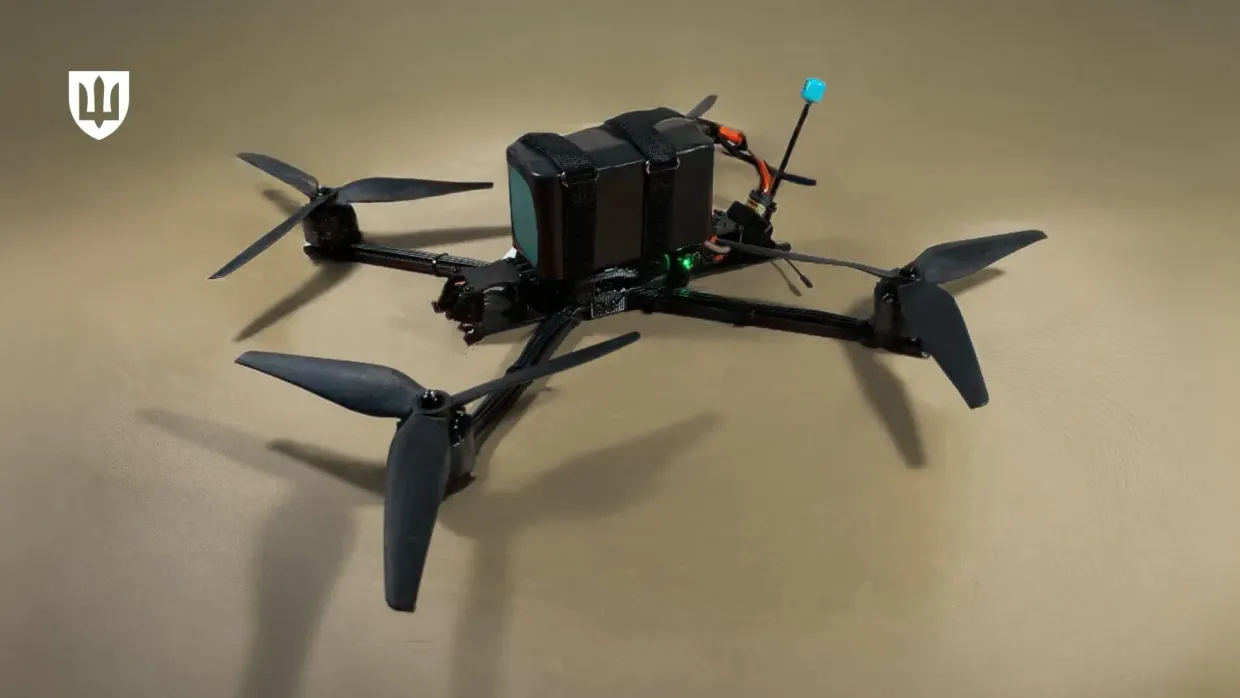
Russia's withdrawal from Ukraine condition for easing EU sanctions, commission says
Russia's "unconditional withdrawal" from Ukraine is one of the main preconditions for changing or lifting EU sanctions, European Commission spokesperson Anitta Hipper told Ukrainian media outlet Suspilne on March 26.
The spokesperson emphasized that EU sanctions do not target Russia's agricultural trade, including food, grain, and fertilizers, with third countries. She reiterated that lifting sanctions would require Russia to withdraw fully from Ukraine.
Washington has agreed to help facilitate Russian food and fertilizer exports by lowering maritime insurance costs and enhancing access to global ports and payment systems. U.S. President Donald Trump previously said that Washington is "looking at" the possibility of lifting some sanctions on Russia to secure the Black Sea ceasefire.
Moscow insists that the Black Sea ceasefire will take effect only if the West lifts sanctions on Rosselkhozbank and other financial institutions linked to food trade, restoring their access to the SWIFT payment system.
The Kremlin is also demanding the removal of sanctions on Russian food producers, exporters, and Russian-flagged cargo vessels involved in agricultural trade.
Note from the author:
Ukraine War Latest is put together by the Kyiv Independent news desk team, who keep you informed 24 hours a day, seven days a week. If you value our work and want to ensure we have the resources to continue, join the Kyiv Independent community.




